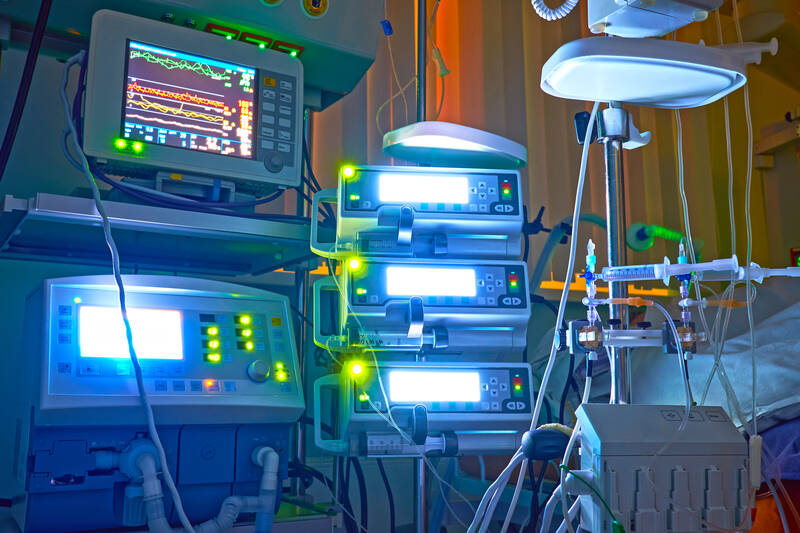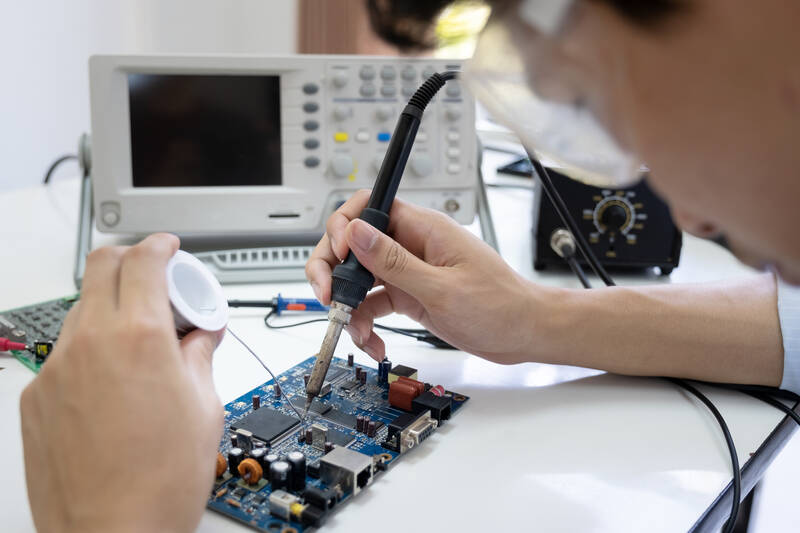Weathering the Pandemic: Malaysia’s Medical Devices Industry at Global Frontline
The Medical Devices Industry Is among the High-Growth Manufacturing Sub-Sectors That Is Expected to Re-Energise Malaysia’s Economic Landscape

A Diverse Industry Landscape
The medical devices industry is among the high-growth manufacturing sub-sectors. It is a significant growth area that is expected to re-energise Malaysia’s economic landscape through the production of high complexity, high-technology and high-value-added products.
Today, Malaysia comprises over 200 manufacturers producing a broad range of products and equipment for medical, surgical dental, optical and general health purposes. The country is the world’s leading producer and exporter of catheters, surgical and examination gloves, supplying 80 per cent of the world market for catheters and 60 per cent for rubber gloves, including medical gloves.
Closely monitored and regulated by The Medical Device Authority (MDA), a regulatory body under the Ministry of Health (MOH), a majority of local medical devices manufacturers in Malaysia are of a world-class standard with compliance to the ISO 13485, US FDA 21 CFR Part 820 and products attaining the CE Mark. It is a global requirement as over 90 per cent of the medical devices manufactured in the country are for the export market.
On the backdrop of the COVID-19 pandemic, the exports of Malaysia’s medical devices increased by almost RM30 billion (USD7.4 billion) in 2020, registering a growth of 24.9 per cent. The major exports were surgical and examination gloves, medical instruments, apparatus and appliances, catheters, syringes, needles and sutures, as well as electro-medical equipment. The top export destinations include the United States, Germany, Japan, Singapore and Belgium.
Investors are also increasingly seeing the appeal of Malaysia as an attractive investment destination, particularly as an outsourcing destination and a medical device manufacturing hub within ASEAN. In 2020, Malaysia’s medical devices industry recorded a stellar performance, with the Malaysian Investment Development Authority (MIDA) approving RM6.1 billion (USD1.5 billion) in investments through 51 projects.

Malaysia’s medical devices industry has developed to the point of manufacturing complex medical products.
Home to the Industry’s Best
From being a simple producer of medical gloves in the 1980s, Malaysia’s medical devices industry has developed to the point of manufacturing complex medical products. Our end-to-end ecosystem is ideal for manufacturers seeking to produce high value-added medical devices and offer supporting services in this niche area. To date, Malaysia boasts of more than 30 medical devices multinational corporations leveraging the country as their offshore location to manufacture their niche products. These companies continue to intensify technologies within their manufacturing plants in Malaysia.
Dexcom, which was ranked 8th in the Fortune’s Future 50 that identifies companies with the best long-term growth potential, announced its first continuous glucose monitoring (CGM) system manufacturing plant outside the USA in Malaysia. The Company’s latest sophisticated medical device products do not require any blood to measure blood glucose reading, empowering people living with diabetes through its innovative CGM systems.
Similarly, in 2014, KLS Martin set up their first production facility for surgical instruments outside of its German headquarters in Malaysia. An industry leader for high-quality and innovative medical technology, the Company not only leverages Malaysia to develop and produce their niche product solutions for the operating room such as implant systems, high-frequency surgical devices, surgical lasers and sterilisation containers; it has established a Centre of Excellence (COE) for general surgery and Research and Development (R&D) centre to serve the industry in Southeast Asia.
Furthermore, UK-based Smith+Nephew, the leading global medical technology business established over 160 years ago, is setting up a facility in Malaysia to support its orthopaedics franchise, which has been growing strongly in the Asia Pacific region. Products earmarked to be manufactured include knee and hip implants.
Malaysia’s medical devices industrial ecosystem also appeals to upcoming and innovative industry players. In July 2016, Materialise NV expanded its Malaysian operation to develop software for additive manufacturing and biomedical engineering in speciality areas such as surgery planning, 3D printed surgery guides and 3D printed customs implants. The company offers flexible and customisable solutions to their counterparts in the medical devices industry. This Malaysian facility aims to become a competence centre within Materialise NV for DLP 3D printing technologies. It has the potential to further enhance Malaysia’s role as a driver behind 3D printing in Asia.
Compelling Opportunities and Incentives
Staying true to its business-friendly reputation, Malaysia welcomes strategic partners to invest in the country. Presently, high-tech medical devices manufacturers are eligible to be considered for full income tax exemption on statutory income for five (5) years under the Pioneer Status scheme or an Investment Tax Allowance of 60 per cent on the qualifying capital expenditure for five (5) years to be offset against 100 per cent of the statutory income. The Government also offers partial grant facilities for research and development and high-tech training of Malaysians to potential investors.
As part of the National Economic Recovery Plan (PENJANA) initiative, Malaysia offers a special Relocation Incentive until December 2022 for new investments in the manufacturing sector, including the medical devices industry. This includes a zero (0) per cent special tax rate for 10 years for new investments with capital investment between RM300 million to RM500 million (USD74.4 million – USD124.1 million) or a zero (0) per cent special tax rate for 15 years for new investments with capital investment above RM500 million (USD124.1 million). Existing company in Malaysia seeking to relocate their overseas facilities into the country with capital investment above RM300 million (USD74.4 million) could also potentially enjoy 100 per cent Investment Tax Allowance (ITA) for five (5) years, to be offset against 100 per cent of statutory income for each assessment year.
Despite the current COVID-19 pandemic, the medical devices industry is forecasted to further expand strongly. The Malaysian market is well placed to benefit from continued governmental commitment, rising public health expenditure and expanding private sector healthcare facilities supported by medical tourism.
For more information on investment prospect in Malaysia, please visit www.mida.gov.my.
Note: The USD exchange rate for the year 2020 is USD1 = RM4.03


